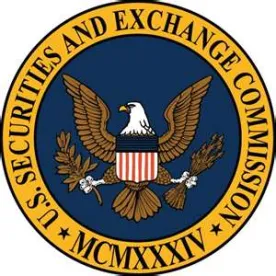The SEC’s regulation of the private investment funds industry has generated significant attention and commentary, as well as a fair amount of hand-wringing. From our perspective, however, there is a relatively commonsense explanation for the SEC’s approach. Rather than acting with a heavy-hand by imposing a comprehensive set of “regulations,” the SEC is implementing its regulatory regime primarily through a combination of examinations, enforcement proceedings, and speeches, with a clear focus on potential and undisclosed conflicts of interest.
The SEC’s regulatory strategy can be described as an attempt to create “community standards” for the private funds industry. The SEC is establishing standards of conduct by publicly declaring certain practices improper through enforcement proceedings and public statements. While some might prefer the “certainty” of a comprehensive and detailed set of regulations, the private funds industry is too large and diverse to lend itself to simple rule-making, especially at the beginning of the regulatory process. Moreover, the most significant drawback (arguably) of the SEC’s current approach—uncertainty—is preferable in most instances to a set of “one size fits all” regulations from a new regulator.
While the risk of uncertainty touches a number of areas of concern for fund managers, the most challenging is the uncertainty over these “standards of conduct”; i.e., determining which practices are—or will be—declared improper. This lack of certainty on where the lines are drawn creates corresponding lack of precision in compliance and guidance on best practices. The SEC has attempted to address this uncertainty by foreshadowing areas of interest and concern in speeches (see, for example, Andrew Bowden’s “Sunshine Speech,” or Mary Jo White’s speech last year at the Managed Fund Association, and, more recently, at the SEC and Rock Center’s Silicon Valley Initiative) and by publicizing enforcement proceedings against fund managers in press releases (see, for example, the SEC’s November 3, 2015 press release, entitled SEC Charges Private Equity Firm and Four Executives With Failing to Disclose Conflicts of Interest).
Of course, uncertainty as to whether a practice is improper is no defense. Fund managers, therefore, must examine their own businesses and evaluate their practices in light of the SEC’s regulatory initiatives. The natural question, of course, is: examine for what? The SEC has provided some guidance. The first and most important guiding principle is to recognize the fundamental relationship between managers and their investors: the managers are fiduciaries for the investment funds that they form and manage.
The second guiding principle is that the SEC is focused principally on conflicts of interest between managers and the funds they operate. Virtually every enforcement action that the SEC has brought against fund managers involved a conflict of interest, including:
-
allocating legal fees relating to an SEC examination and follow-on enforcement action to the funds without adequate disclosure to investors;
-
using fund assets to pay their own operational expenses without proper authorization or disclosure to investors;
-
failing to disclose to investors that accelerated “monitoring fees” had been charged to the funds’ portfolio companies and that the managers received a discount on legal fees that was substantially greater than the discount received by the funds; and
-
causing the fund’s portfolio companies to terminate their existing fee obligations to the manager (which would have benefited the fund by virtue of a management-fee offset) and re-routing the fees to a “consulting” entity directly affiliated with the adviser (which did not benefit the fund).
Viewed in their proper context, these cases are not random, nor is the SEC simply moving through a running list of unrelated “bad acts” as it discovers them. Rather, these cases share a common denominator: a business practice that, in the SEC’s view, creates a conflict of interest between the fund manager’s own interests and the interests of the fund, resulting in a breach of the manager’s fiduciary duties.
The third guiding principle is one of disclosure. The duty of full disclosure—at the time of investment decision—allows managers to strike a balance between their commercial interests and their fiduciary duties. If a practice that appears to benefit the manager is expressly and specifically disclosed in writing at the time that the investor decides to invest in the fund, then the SEC generally has no basis to challenge it. If, however, a practice is not expressly and specifically disclosed in the limited partnership agreement and offering materials, and such practice comes to the attention of the SEC either based on an examination or otherwise, then the SEC may challenge the practice.
Going forward, managers should examine their own practices and focus on those that the SEC may view as a conflict of interest (these typically will involve fees and expenses), and ask: was this practice fully disclosed in the offering materials? If not, then the practice is vulnerable to a challenge.





 />i
/>i
